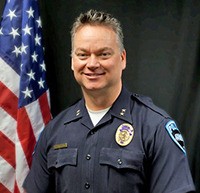When officers write traffic tickets, they almost always add a few informal words to enlighten the driver about the law.
But now that city leaders have given the Auburn Police Department permission to set up a traffic school, as other local cities have done, such schooling is going to get a lot more formal.
“A lot of times [issuing a citation] is done with the idea of education,” said Auburn Police Cmdr. William Pierson, “so we want to take this to the next level and really provide an education for those who receive a citation.”
As Pierson recently told the Auburn council, the purpose of setting up a traffic school is to educate errant drivers on current driving laws and on traffic safety issues specific to Auburn.
But, according to Pierson, with advantages all around.
In addition to receiving a review of traffic laws, that is, drivers who complete the course get to keep the violation off their driving record, which helps to keep their car insurance down.
The city’s gain is to keep drivers informed of the law, increase compliance and make the streets safer.
A traffic school will also reduce the number of court challenges by allowing the department to cut the time officers spend in court, Pierson said.
Auburn officers steeped in traffic safety issues will be on the school instructor’s team, Pierson said. As of the end of June, the department was already writing the curriculum.
Here’s how the system works elsewhere:
• Once officers write those tickets, they let violators know they may be eligible for traffic school. Based on that individual’s driving record, however, some people may not qualify.
• Next, the violator contacts traffic court to ask for a mitigating or contested hearing.
• At that hearing, violators inform the court that they intend to explore the option of being eligible for traffic school. At that time, the court gives drivers 180 days to apply for traffic school, either online or via a paper application.
• Next, via the mail, the court notifies violators whether they have been accepted.
• Once accepted, the violator attends traffic school, usually a four-to-five hour course.
“They are not going to receive a certificate, but if they have completed the course, the information that they have … is going to the prosecutor, and the prosecutor forwards that to the court,” Pierson said.
“And then, when they go to the hearing that is already set out, they will show proof that they have attended traffic school. At that point, the prosecutor of the city may dismiss one charge. When multiple charges are involved, it will be the court’s decision at that point on what violation gets dismissed,” Pierson said.



